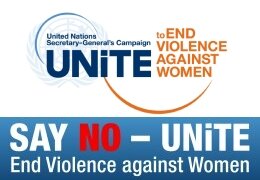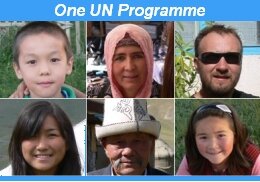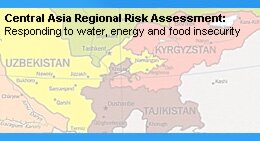| Experts discuss the “Cost of Domestic Violence” |
|
|
|
Bishkek, April 5 2013 – A consultative meeting devoted to the cost of domestic violence was held in Bishkek today with participation of the experts, representatives of ministries and agencies, nongovernmental and international organizations. The purpose of the meeting was to discuss the results of a study conducted to develop a methodology for assessment of the economic impact of domestic violence.
The study was conducted in 2012 by a group of experts in order to contribute to development of the system of assistance provision to victims and gender violence prevention in Kyrgyzstan. As a result, experts developed economic arguments in favor of implementation of gender equality policies, including protection of rights of victims of gender violence through calculations of the damage caused to society by domestic violence. Also, a methodology that stipulates application of a mix of tools was developed based on international and regional experiences. Economic calculations and availability of policy documents allows to demonstrate more convincingly the fact that family violence is not only a personal problem, but a public one as well. The state bears significant expenses linked to consequences of gender violence, including domestic violence. Often, victims loose working capacity which means the loss of tax revenues and increase of burden on the social sector. Each year, internal affairs bodies register more than 7,000 cases of family conflicts. For 10 months of 2012, 2807 family incidents were reported in Bishkek, which is 35% more than for the same period in 2011. 1-2 cases with injuries and other health problems from domestic violence are officially registered each day, which makes over 600 cases per year. 22 murders were committed as a result of domestic violence in 2011. “The Cost of Domestic Violence” project was implemented with the support of Ombudsman’s Office and the Ministry of Youth, Labour and Employment. The activities and research organization were ensured by UNDP Democratic Governance Program, EU-UN “Operationalising Good Governance for Social Justice” project and Friedrich Ebert Foundation.
“Operationilising Good Governance for Social Justice” Project was launched in October 2011 and will be implemented during 36 months until October 2014. The Project aims to increase and render more equitable rights to public services for citizens, especially for vulnerable groups - women, youth and children in 30 rural municipalities in 7 regions of Kyrgyzstan. This project is implemented by UN Agencies - UNDP, UNICEF, UN Women and UNESCO. The European Union co-finances this project together with the above-mentioned UN agencies.
|





















